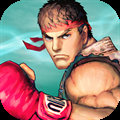Copyright lawyer calls Nintendo’s latest US patent a ‘shocking and offensive’ systemic failure

If you were among those who were astonished and confounded by the fact that Nintendo locked down a patent in the U.S. for the ability to summon things to fight enemies in a video game, it’s probably comforting that a lawyer whose entire practice is focused on IP and patent protection is just as confused and annoyed. Alas, that is indeed the case for at least one practicing legal expert, who has expressed his own dismay at the USPTO’s recent decisions.
These reactions come from Kirk Sigmon, an IP attorney who has years of experience in prosecuting and teaching patent law, and while he makes clear his opinions don’t necessarily represent his firm or the clients he represents, his expertise is most certainly informing how he’s processing the government body’s decision to grant patents for riding creatures and summoning pets into battle.
“In my opinion, none of [these] patents I’ve discussed here should have been allowed. It’s shocking and offensive that they were. The USPTO dropped the ball big time, and it’s going to externalize a lot of uncertainty (and, potentially, litigation cost) onto developers and companies that do not deserve it.”
Sigmon also pointed out what he called “red flags” in the approval process, including the fact that the summoning game mechanic received almost no pushback whatsoever – he says that most patent filings get at least one rejection – and that the examiner merely copied a block quote from Nintendo’s filing itself as reason for approval, which suggests to Sigmon that these were carelessly pushed through.
“This seems like a situation where the USPTO essentially gave up and just allowed the case, assuming that the claims were narrow or specific enough to be new without evaluating them too closely,” he contends. “I strongly disagree with this result: In my view, these claims were in no way allowable. […] Broadly, I don’t disagree with the many online complaints about these Nintendo patents. They have been an embarrassing failure of the US patent system.”
This apparent rush job could, in Sigmon’s estimation, lead to some further dark days for smaller groups and indie studios, which in past litigation have been Nintendo’s favorite targets; he surmises that patent validity issues will be relegated to costly lawsuits while bad patents “get to fester on the market for longer” and therefore poison the games industry. Nice going, Nintendo.
source: PC Gamer. Cheers, Crimson.












